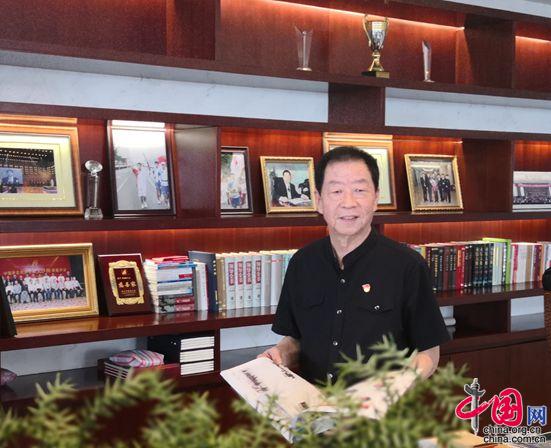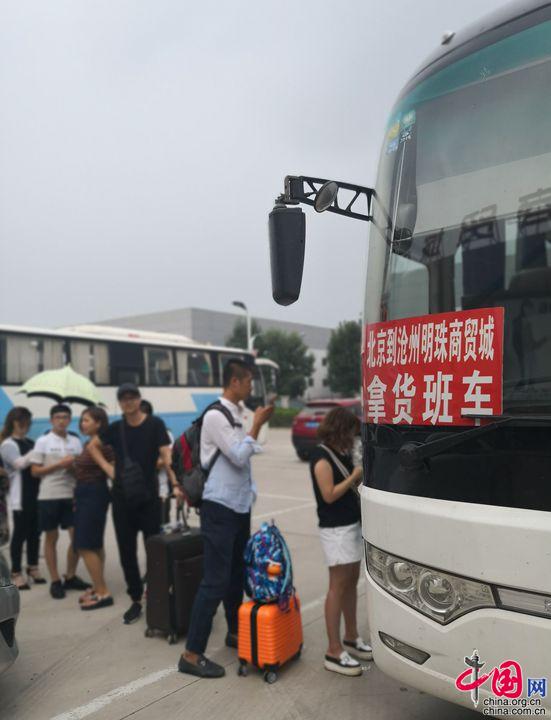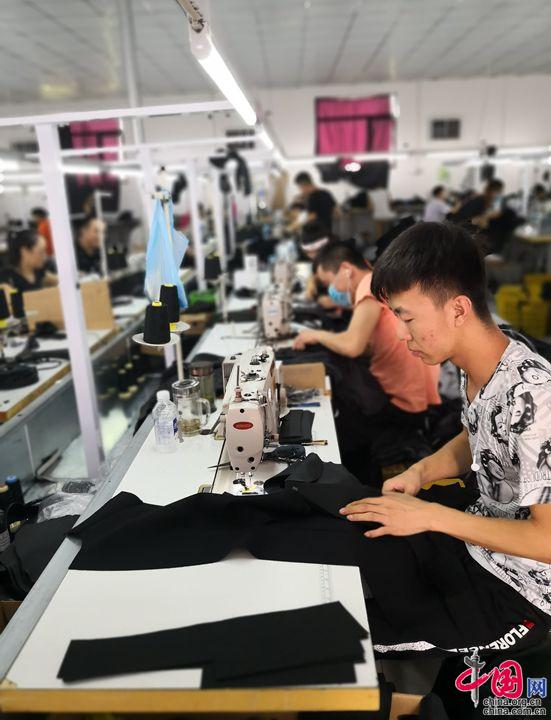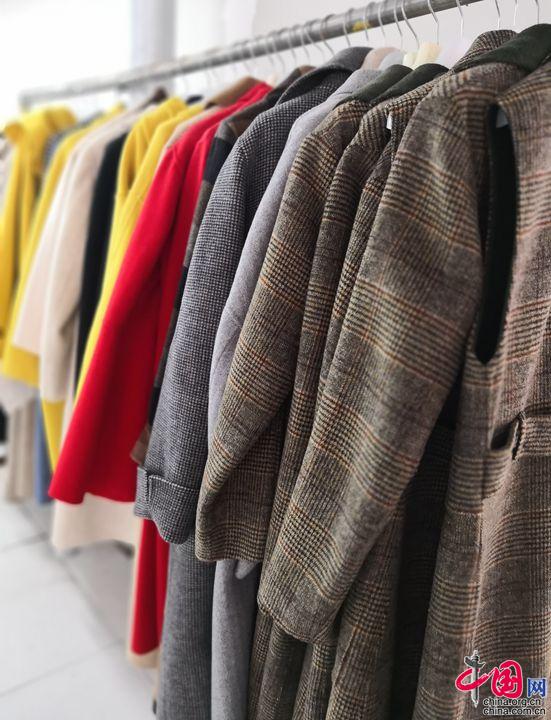Cangzhou entrepreneur capitalizes on Beijing exodus
- By Yuan Fang
 0 Comment(s)
0 Comment(s) Print
Print E-mail China.org.cn, August 1, 2018
E-mail China.org.cn, August 1, 2018

For a shrewd businessman, China's plan for coordinated development in the Beijing-Tianjin-Hebei region means huge business opportunities. Yu Guiting, board chairman of Dongsu Group in Cangzhou city, Hebei province, is such a businessman.
The 69-year-old man has always wanted to branch into the garment industry since the 1980s when he went to the United States on a business trip and was amazed by what he saw at a garment industry cluster there. In 2014, when China put forward the plan for regional development, Yu believed it was exactly the right time.
According to the plan, Beijing needs to relieve itself of functions non-essential to its role as the Chinese capital, which includes the relocation of its garment industry.
Yu compared Beijing's garment industry to a tree that has grown very big after three decades of development --about 600,000 people were in Beijing's garment business before the relocation. For the tree to survive and thrive in Cangzhou, Yu said, he needed to provide fertile soil and a large enough planting hole for it to grow.
His idea was to create an industrial cluster which adopts a modern business operating model and incorporates every single link of the garment industry from R&D, design, production, storage, logistics all the way down to wholesale and retail.
His Cangzhou Dongsu Mingzhu Commodity Market opened in 2014 and was designated as a demonstrative project on how to respond to Beijing and Tianjin's industrial transfer.
So far, approximately 15,000 garment vendors from Beijing have entered or signed letters of intent to enter the market, which has a planned business area of 2.2 million square meters.
Upon full completion, the project will be able to host 30,000 vendors from Beijing and post a turnover of 240 billion yuan.
To woo Beijing's garment businesses, Dongsu has a slew of preferential policies in place, including rent free and property management fee waivers.
The company has also launched free shuttle buses to transport clients from Beijing to Cangzhou. It also operates buses to other Chinese cities in an attempt to lure in more clients.

For garment production, the main location is the Mingzhu Garment Town in east Cangzhou. Upon full completion, the 333-hectare, 53.6-billion-yuan town will be able to accommodate over 10,000 garment manufacturers from Beijing that can realize an industrial value of over 200 billion yuan and generate 300,000 jobs.
Relocated manufactures can either rent factories or buy land to build their own factories. So far, more than 4,300 manufacturers from Beijing have relocated to the town.
For garment vendors and manufacturers, the move from Beijing to third-tier city Cangzhou is at first an apprehensive one.
To allay their worries, Dongsu approached them and offered them free rides to Cangzhou to inspect the local business environment. They were mostly received by Dongsu’s board chairman Yu, who addressed their concerns and briefed them on his business plan. Such inspection trips helped them decide to relocate.
Three years into the relocation, there is now general optimism about business growth in Cangzhou among vendors and manufactures.
Wang Ligong, who had been in the garment business in Beijing for 24 years, moved to Mingzhu Garment Town in 2016.
Compared with Beijing, the cost of running a business in Cangzhou is significantly low, said Wang.

He had a 13,000-square-meter factory in Beijing before moving to Cangzhou. Though the factory could no longer meet his needs, he could not expand his production space due to land restraints. After relocating to Cangzhou, he is now building a 37,000-square-meter factory at a much lower cost.
Besides, electricity and water bills are almost half the price of Beijing, according to Wang.

In addition to business concerns, vendors and manufacturers also have living concerns related to their families and employees. They need places to live and their children need schools to attend.
To reassure them, Dongsu has built apartment buildings for them to buy at cost prices. The group has also promised access to education for their children.
Hu Xitian, a 36-year-old vendor from Beijing's famous Dahongmen Morning Market, moved to Cangzhou with his wife and child early this year. His child is going to attend primary school in Cangzhou next year.
"Dongsu Group has made arrangements with local educational authorities to ensure my child's access to a primary school.”
Dongsu's board chairman Yu admitted, “the capital input in the project is huge," but he was confident that as more and more vendors and manufactures gravitate toward Cangzhou, the city would be set to have a thriving garment industry and become a capital of fashion in China and even in the world.
For the dynamic old man, it is a dream coming true.






Go to Forum >>0 Comment(s)